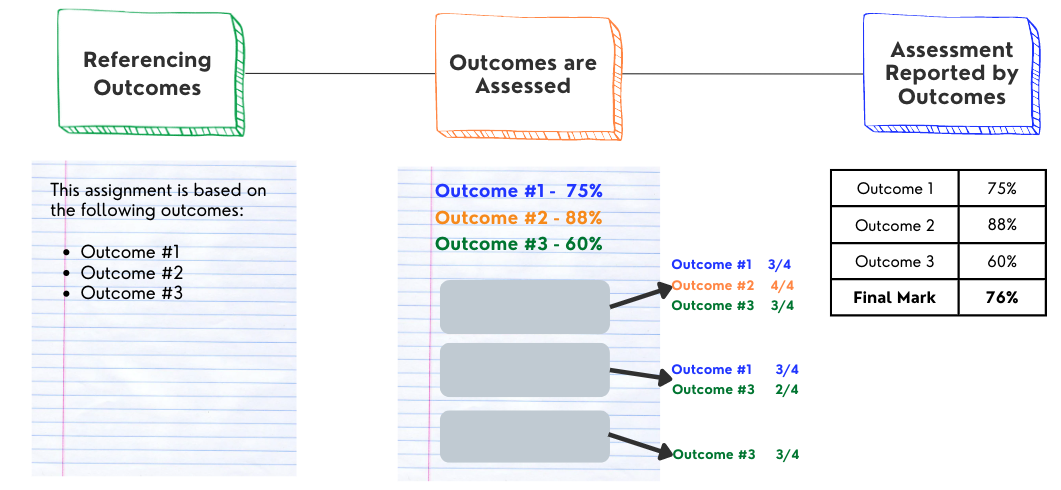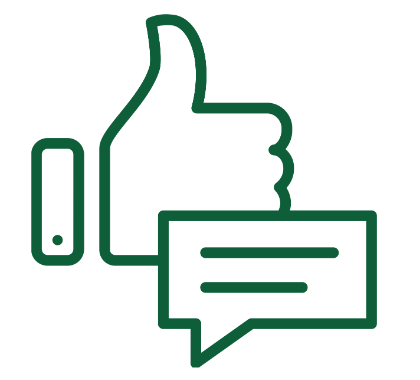Grading reflection

Giulia Forsythe, CC0, via Wikimedia Commons
Summary: Reflect on grading practices to enhance student learning and equity. Discover how thoughtful assessment can drive better educational outcomes. How can you determine if someone’s reflection is good enough, and how can you signal that to students so they reflect well and understand the feedback and grades they receive?
Date of publishing: September 2, 2022
We want students to reflect as a part of the learning process, because it helps them to consolidate what they have learned, think about why it is important to them, and be able to apply what they have learned later. But when we get ready to grade that reflection, it can be challenging.
Step 1 – Clarify why you want students to reflect
Start by thinking about your learning outcome. Why is reflection great evidence of learning it, and what types of things would students do in their reflection that showed good learning? Choose 1 or 2 of these that you find the most convincing:
- Picking out what is most important
- Seeing implications of observations
- Questioning assumptions or prior learning
- Accurately assessing personal performance
- Describing errors and determining how to improve
- Setting appropriate goals
- Relating experiences to course content
Step 2 – Plan a sequence of practice, feedback, and reflection
Reflecting well is a skill, and different faculty members look for different elements of that skill. If you want to assess students on reflection, think about how you will teach what good reflection is and how you will give them feedback about it before you have them do it for grades. This doesn’t need to be a written assignment you grade – student can practice with a peer in class. They key is that they are able to tell if they have reflected well and why, and know what to do to improve the quality of their reflection before it is graded.
Step 3 – Clarify the goals with your students
- Clarify why you are requiring reflecting with your students, and touch on it early and often
- Give a clear prompt
- Give models and samples of reflection and have students rank them (download Reflection samples)
- Align them with levels on rubric (download Self-reflective rubric and Reflective rubric)
Remember that grading reflection is about grading likelihood of successful self-direction later, not about alignment with specific beliefs you just taught. Focus your grading on distinguishing between students who can reflect and grow in your discipline, and those who need more feedback and guidance to do it well.
Learn more
- Learn more about Experiential Learning at USask and how reflection is an essential part
- Read more about the role of reflection in learning from other Canadian higher education institutions
- Explore why reflection has such a high impact on learning by reading on topics like self-regulation, metacognition, summarization, deliberate practice, and setting learning goals. Hattie and Zierer (2017) have a great summary of metanalysis on this subject.
References
Forsythe, G. (2011). The Promise of Reflective Journals [Digital image]. CC0. Wikimedia Commons. Retrieved from https://www.flickr.com/photos/gforsythe/6810638539/ https://commons.wikimedia.org/wiki/File:The_Promise_of_Reflective_Journals_(6810638539).jpgHattie, J., & Zierer, K. (2017). 10 Mindframes for Visible Learning: Teaching for Success (1st ed.). Routledge. https://doi.org/10.4324/9781315206387
This resource is shared by the Gwenna Moss Centre for Teaching and Learning (GMCTL), University of Saskatchewan, under a CC BY-NC-SA license
Keywords:
#Assessment
#Evaluation & Grading
#Reflection
#Formative Assessment


